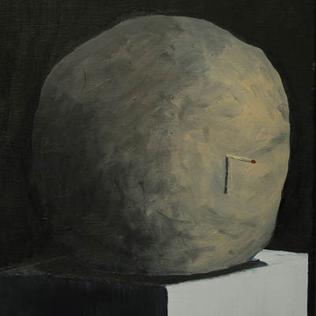 W
WAn Empty Bliss Beyond This World is the ninth studio album by the Caretaker, an ambient music project of English musician Leyland Kirby. The record is based on a study regarding people with Alzheimer's disease being able to remember music they listened to when they were younger, as well as where they were and how they felt when they listened to it. The LP comprises modified samples of pre-World War II shellac ballroom jazz records Kirby bought cheaply at a Brooklyn store in December 2010. This theme of Alzheimer's in music would be greatly expanded upon through 2016 to 2019 through Kirby's final series of albums as The Caretaker.
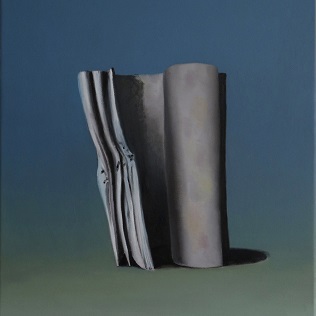 W
WEverywhere at the End of Time is the eleventh recording by the Caretaker, an alias of English electronic musician Leyland Kirby. Released from 2016 to 2019, its six studio albums depict the progression of dementia through degrading loops of ballroom recordings. Inspired by the success of An Empty Bliss Beyond This World (2011), Kirby recorded Everywhere as his final work under the alias. He produced the albums in Krakow over six-month periods to "give a sense of time passing", using abstract paintings by his friend Ivan Seal. The series drew comparisons to composer William Basinski and electronic musician Burial, with the later stages being influenced by avant-gardist John Cage.
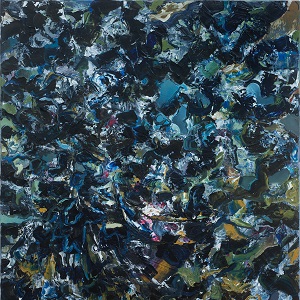 W
WEverywhere, an Empty Bliss is the eleventh release by the Caretaker, an alias of English musician Leyland Kirby. Released on February 26, 2019, the record is compiled from archived tracks that were meant to be used on the Caretaker's albums. Before finishing his album series Everywhere at the End of Time, Kirby released the album as "a surprise golden farewell." The Caretaker's first compilation album, it is also the first album under the alias to feature lyrical content.
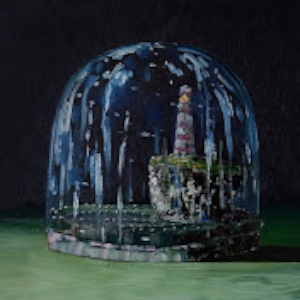 W
WThe soundtrack for Patience (2012), a film by Grant Gee, was composed and produced by English musician James Leyland Kirby under his ambient music project The Caretaker. The official soundtrack album was issued on 23 January 2012. Unlike other albums of The Caretaker that used old recordings of playful and bright ballroom music, Kirby's score for the film uses a 1927 record of Franz Schubert's piano-and-voice-only composition Winterreise (1828) as its main audio source. It also differs from other works of the project where hissing sounds are used instead of crackles, the loops are shorter in lengths, and the non-musical aspects of each track serve as the foreground of the mix. The soundtrack was favorably received by professional music journalists.
 W
WPersistent Repetition of Phrases is the seventh studio album by the Caretaker, an alias of musician Leyland Kirby. Released on 1 April 2008, it was his first record to implement themes of Alzheimer's disease. The album was also the first Caretaker release to present looping of short segments within tracks. It marked Kirby's change of record labels from V/Vm Test to History Always Favours the Winners, which he felt might have helped with the record's success.
 W
WSelected Memories from the Haunted Ballroom is the debut studio album by the Caretaker, an alias of musician Leyland Kirby. Released in 1999, it consists of an influence from the horror film The Shining, manipulating songs from the 1920s to resemble the film's music. It differed from Kirby's earlier works in that it did not manipulate pop songs to create noise albums, as he did under the V/Vm alias. It rather slowed down big band records to create a hauntological atmosphere, as he did on the Caretaker's early albums. However, the packaging was the same as other V/Vm releases. The album was met with positivity from music critics, who praised its hauntological themes.
 W
WA Stairway to the Stars is the second studio album by the Caretaker, an alias of musician Leyland Kirby. Released in 2001, it was created after one of Kirby's pop manipulations as V/Vm gained attention. Following Selected Memories from the Haunted Ballroom, A Stairway to the Stars features new genres such as darkwave and elements such as reversed vocals. The record was met with positivity from music critics, who praised its ambiance. It is regarded as Kirby's best album in his haunted ballroom trilogy, which spans his first three releases.
 W
WTake Care. It's a Desert Out There... is the eleventh studio album by the Caretaker, an alias of musician Leyland Kirby. Released on 8 December 2017, Kirby composed it after the death of his collaborator, Mark Fisher, who died by suicide on January 13, 2017 at age 48. Consisting of a single title track throughout its 48-minute runtime, its proceeds would be donated to the mental health charity Mind. Kirby's initial intention would be to give the record to attendants of his performance at the Kraków Barbican. However, due to a high demand, he decided to release it on his YouTube channel.
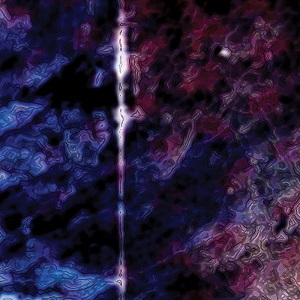 W
WTheoretically Pure Anterograde Amnesia is the fourth studio album by the Caretaker, an alias of musician Leyland Kirby. Released in 2005, it abandoned the haunted ballroom aesthetic of the previous albums and explored memory loss. Divided into six CDs, it consists of seventy-two drone tracks combined to create a five-hour long release. It was compared by several critics to other musicians, including Merzbow, Boards of Canada, and Krzysztof Penderecki.
 W
WWe'll All Go Riding on a Rainbow is the third studio album by the Caretaker, an alias of musician Leyland Kirby. Released in 2003, it was the last of Kirby's "haunted ballroom trilogy", which spans his albums influenced by the film The Shining. It features looped melodies and vinyl crackle to create the ambience of The Shining's ballroom, with its artwork emphasizing this style. We'll All Go Riding on a Rainbow was met with positive reception from music critics, who praised its haunted ballroom ambiance. However, other critics felt that the album's length was an issue. Kirby's next album as the Caretaker, Theoretically Pure Anterograde Amnesia would abandon the haunted ballroom concept and install themes of memory loss.